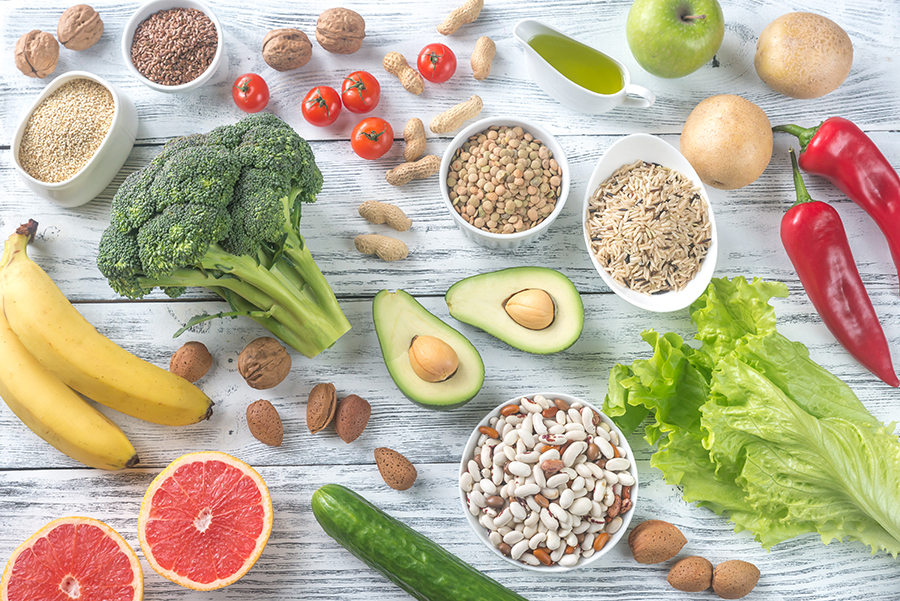
March is National Nutrition Month. It’s a time to focus our attention on the importance of making informed food choices and developing sound eating and physical activity habits. This year, in order to achieve these goals, Brigham and Women’s Faulkner Hospital’s registered dietitians want to explore the benefits of plant-based eating.
Outpatient and Community Liaison Dietitian Allie Lang, RD, LDN, says one of the best things you can do to feel great, prevent chronic disease and take care of planet Earth is to eat more plants and less animals. “Scientific research shows that filling up on plant-based proteins, fruits, vegetables and whole grains is one of the best ways to nourish your body,” she says. “Even trying to eat a few meatless meals per week can have an impact on your health and the environment.”
So, why are plants so great for you?
They are filled with fiber which helps with digestion and can help lower blood cholesterol to prevent heart disease. They are also rich in antioxidants which can help prevent certain types of cancers. Additionally, they are chock full of vitamins, minerals and phytochemicals which perform essential jobs inside your body.
Don’t I need to eat animals to get enough protein?
No! On average, Americans actually eat more protein than they need which can lead to weight gain. There are plenty of plant-based protein sources like beans, nuts, tofu, tempeh, lentils and whole grains. You can get all your essential amino acids from plants.
What is the relationship between a plant-based diet and the environment?
Cutting back on dairy and meat consumption is the single best thing you can do to reduce your impact on global warming. The impact is far greater than cutting back on your personal use of fossil fuels. Out of all meat, poultry and dairy products, red meat has the largest negative impact on the environment. To produce a quarter pound of beef, up to 231 pounds of greenhouse gases are produced! For the same amount of tofu less than eight pounds are produced.
“This National Nutrition Month, I encourage everyone to try adding an extra serving of vegetables with dinner or switching out that steak dinner for a vegetarian chili or some lentil dal with rice,” says Lang. “Small steps toward eating more plants and less meat can make a difference for your family’s health and the environment.”
Want to learn more about plant-based eating? Contact the Nutrition Clinic at Brigham and Women’s Faulkner Hospital at 617-983-4455 to schedule an appointment with a registered dietitian.
Looking for more news from BWFH? Go to News to find articles about health, updates to our programs and services and stories about staff and patients.
Go to News